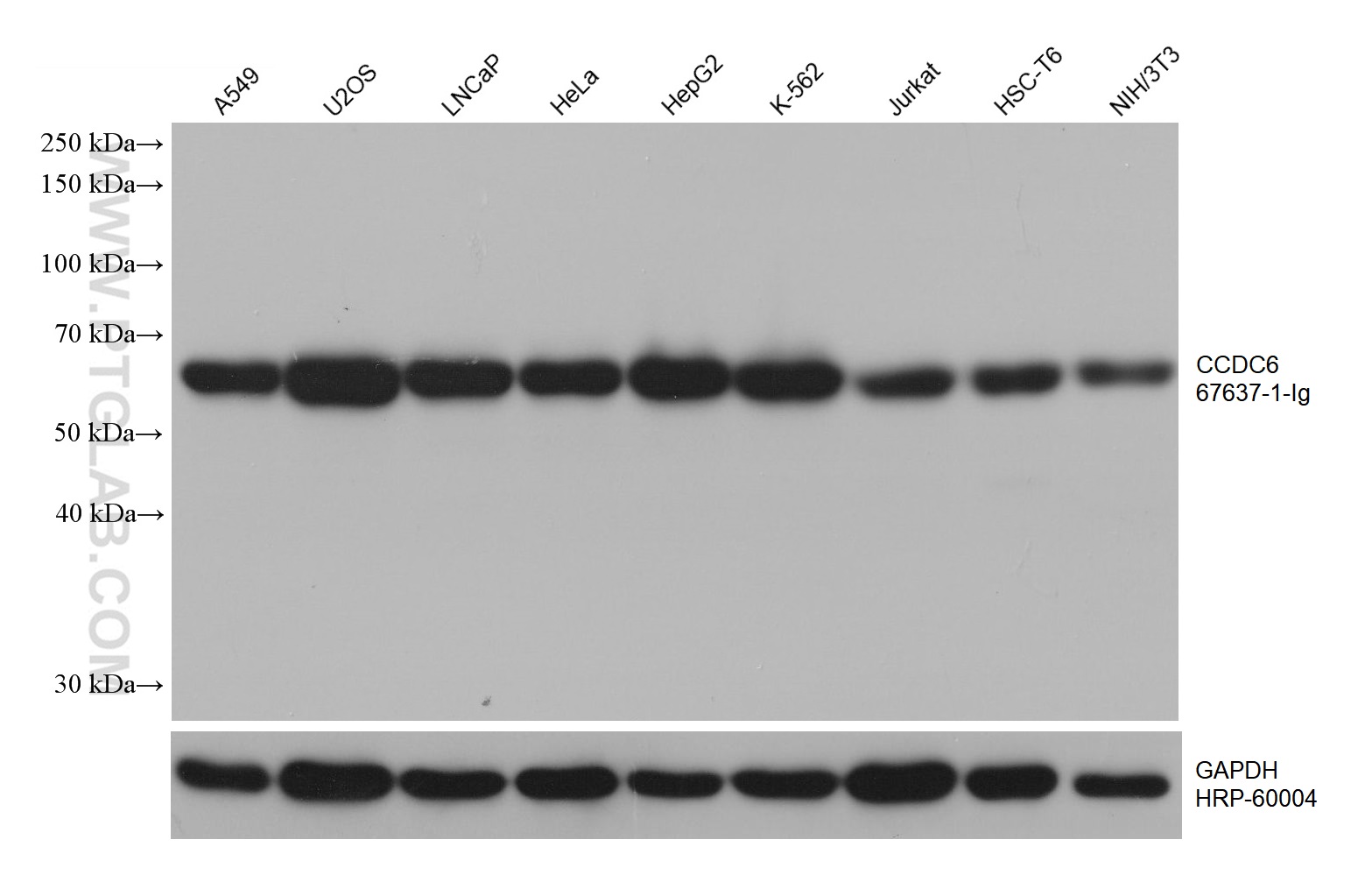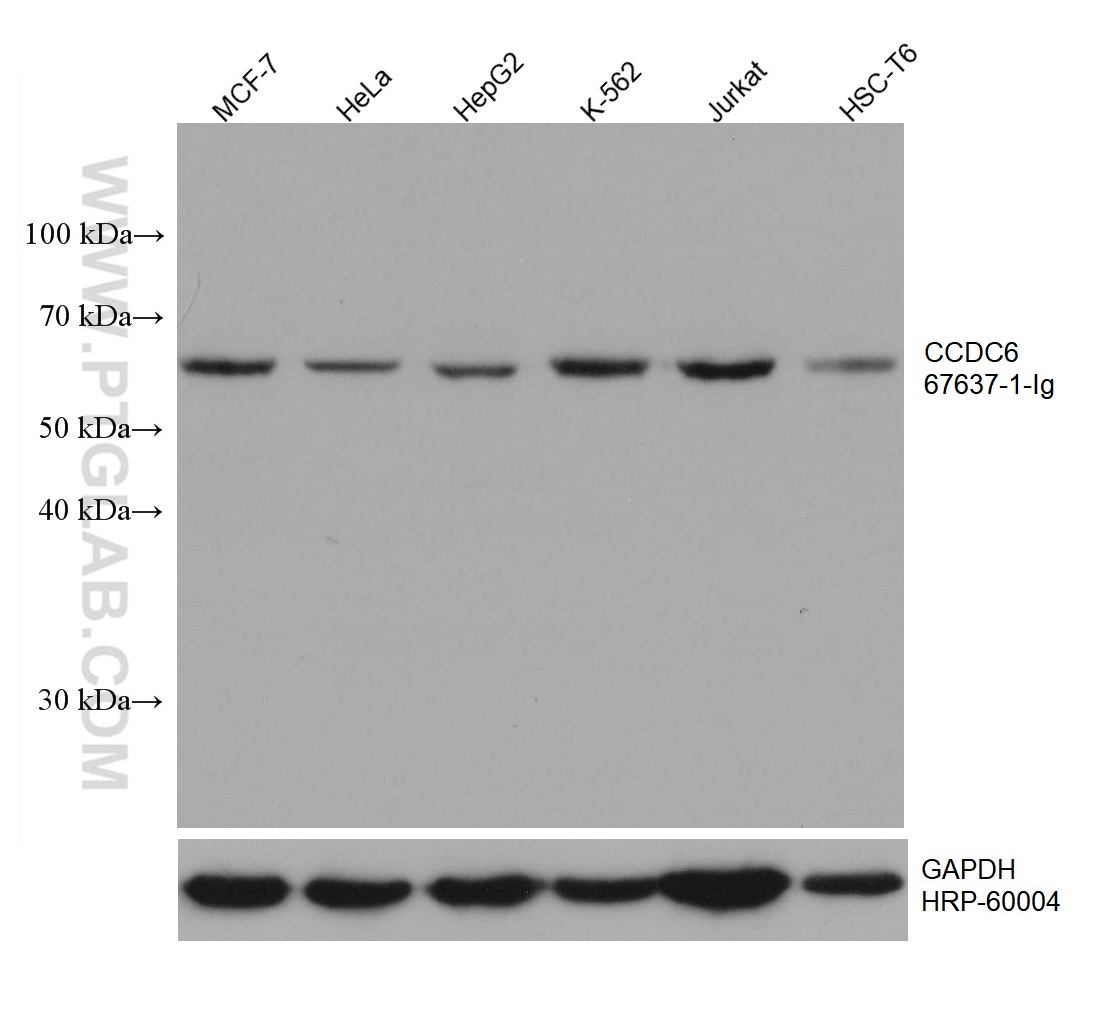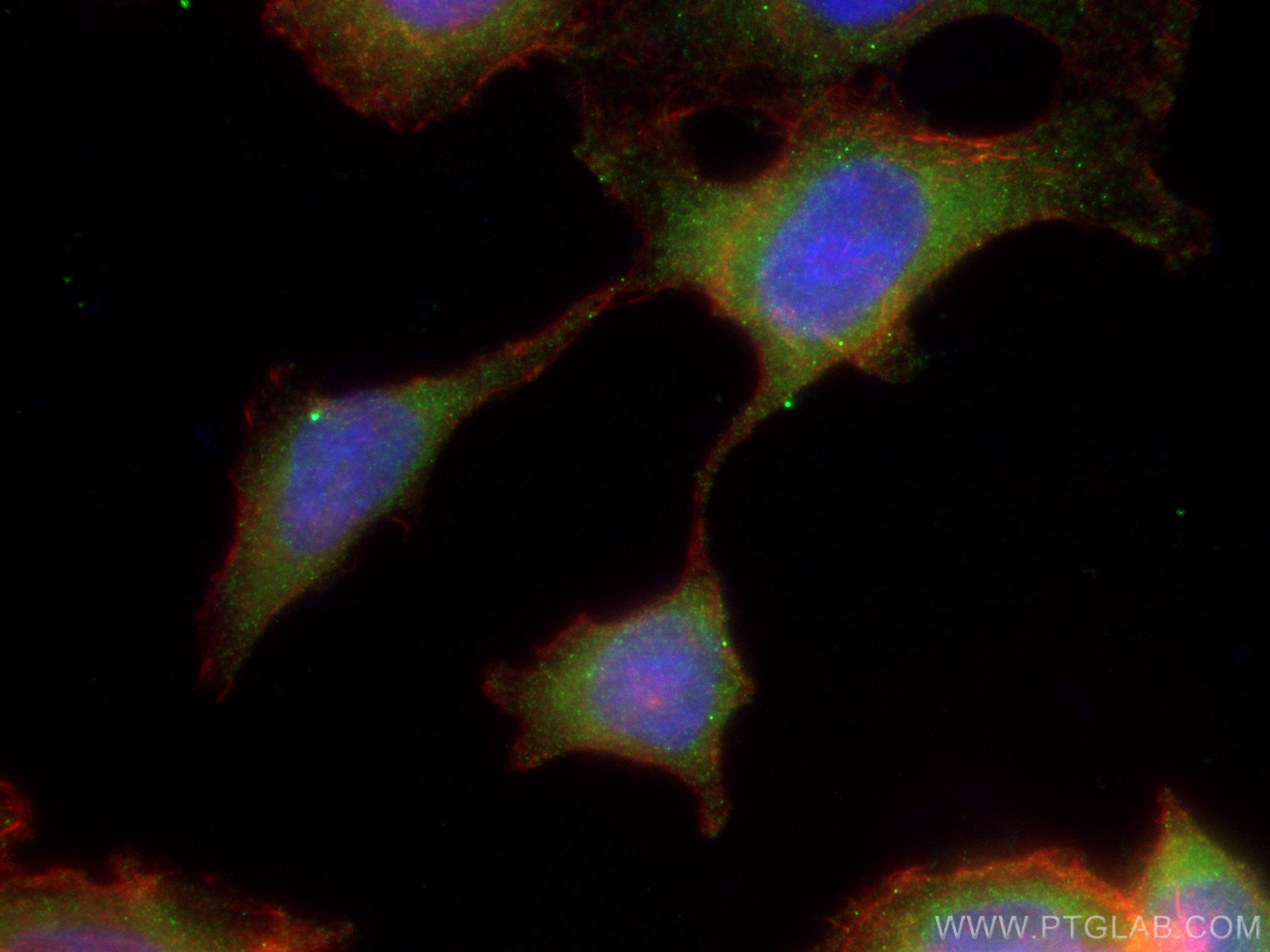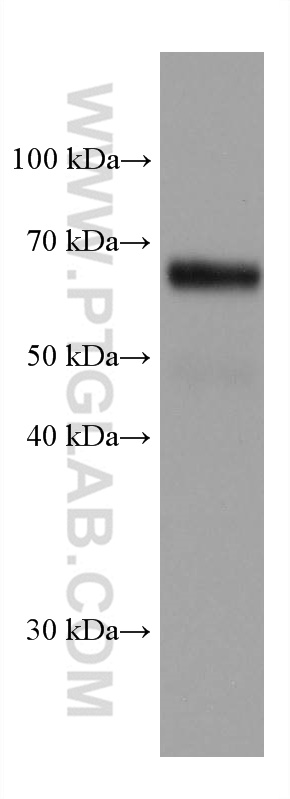验证数据展示
产品信息
67637-1-PBS targets CCDC6 in WB, IF/ICC, Indirect ELISA applications and shows reactivity with Human, mouse, rat samples.
| 经测试应用 | WB, IF/ICC, Indirect ELISA Application Description |
| 经测试反应性 | Human, mouse, rat |
| 免疫原 | CCDC6 fusion protein Ag6952 种属同源性预测 |
| 宿主/亚型 | Mouse / IgG1 |
| 抗体类别 | Monoclonal |
| 产品类型 | Antibody |
| 全称 | coiled-coil domain containing 6 |
| 别名 | CCDC6, D10S170, FLJ32286, H4, Protein H4, PTC, TPC, TST1 |
| 计算分子量 | 474 aa, 53 kDa |
| 观测分子量 | 65 kDa |
| GenBank蛋白编号 | BC036757 |
| 基因名称 | CCDC6 |
| Gene ID (NCBI) | 8030 |
| RRID | AB_2882838 |
| 偶联类型 | Unconjugated |
| 形式 | Liquid |
| 纯化方式 | Protein A purification |
| UNIPROT ID | Q16204 |
| 储存缓冲液 | PBS only , pH 7.3 |
| 储存条件 | Store at -80°C. The product is shipped with ice packs. Upon receipt, store it immediately at -80°C |
背景介绍
CCDC6 (Coiled-coil domain-containing protein 6) is also named as Protein H4, D10S170 and TST1. CCDC6, was initially isolated as part of a tumorigenic DNA originated by the fusion of CCDC6 with the tyrosine kinase of RET receptor. CCDC6 has been considered as an accidental partner of the RET protooncogene, providing the promoter and the first 101 aa necessary for the constitutive activation of the oncogenic Tyrosine Kinase (TK) RET in thyroid cells. The 65 kDa product of CCDC6 has a nuclear transfer sequence with no transmembrane domains and is predicted to locate in both the nucleus and the cytoplasm (PMID: 29044514). The CCDC6 is a phosphoprotein, predicted target of several S/T kinases which can modulate the protein stability and the intracellular shuttling into the nucleus upon different cellular signals mediated by ERK1/2, ATM and CDK1/2. CCDC6 is involved in cellular response to DNA damage mediated by ATM, with the final result of promoting cellular apoptosis. CCDC6 depleted cells are considered defective of DNA repair checkpoint and proceed faster than the control cells in the cell cycle upon induced DNA damage (PMID: 22655027).



